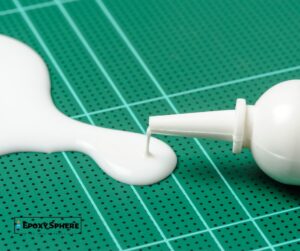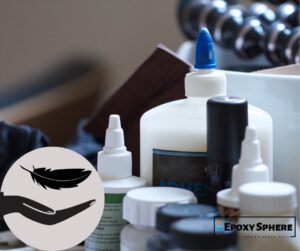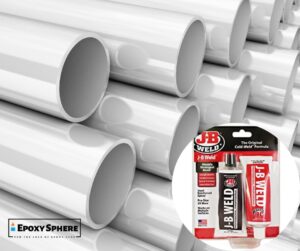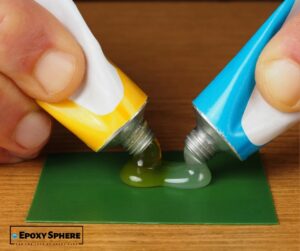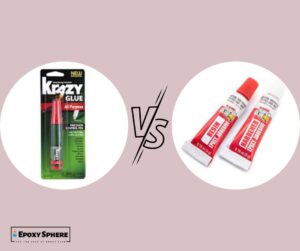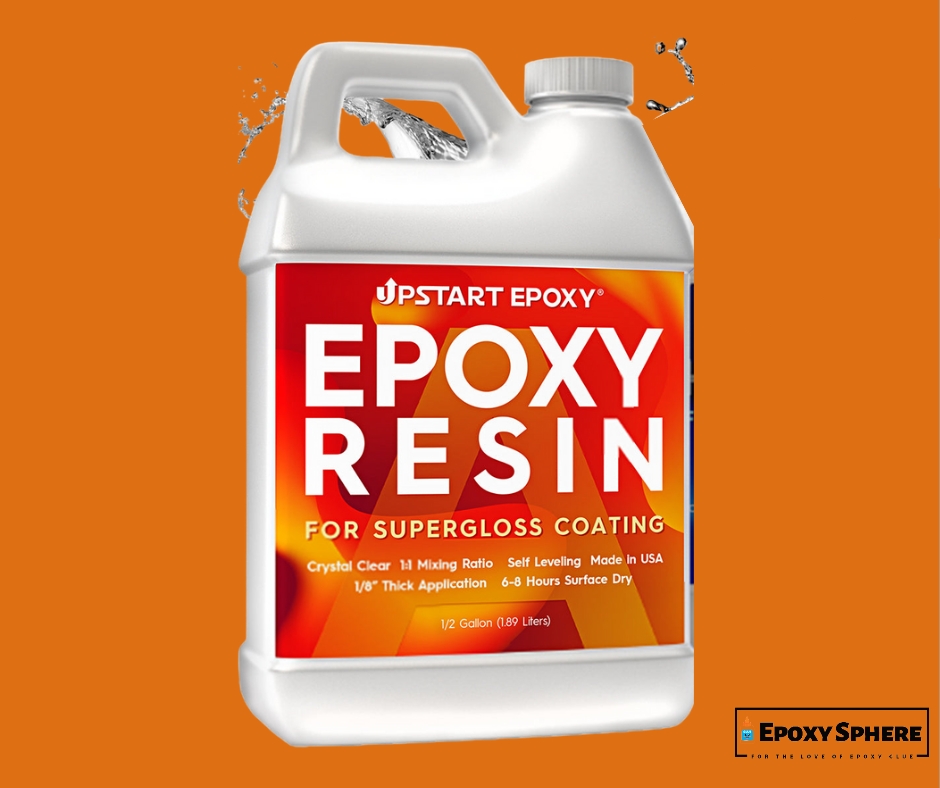
There are lots of adhesives with special features, which also require special usage and handling. Often it happens that we used substances and materials for perceived reasons. For example, anything that stays “glue” can be assumed to work for every material, which may be dangerous. For clarification, I’ll answer a popular question; what is epoxy resin glue used for?
Epoxy resin glue is a strong adhesive that can bond various surfaces. It is very versatile and has many applications.
It is used to stick metal to metal, wood, concrete, and other materials that can take high temperatures. We can also use epoxy resin glue in combination with other products like fiberglass cloth or metal mesh to increase its strength.
Epoxy resin glue is a high-strength adhesive used to bond two or more materials together.

Other Uses Of Epoxy Resin Glue
We can use epoxy resin adhesives in a wide range of industries, including aerospace, marine, chemical processing, electronics, and construction. It is typically supplied in liquid form but can also be supplied as a powder to be mixed with an activator before use.
Epoxy resin glue is available in different viscosities and cures times depending on the application requirements. The higher the viscosity, the longer it takes for the epoxy resin to cure fully. Other common uses of Epoxy Resin include:
Bonding Metals
Epoxy resin glue works well to bond metals such as steel or aluminum. It can also bond dissimilar metals such as steel to aluminum with the addition of suitable filler material such as graphite powder or milled fiberglass cloth.
Bonding Plastics
Epoxy resin glue works well for bonding plastics such as polypropylene and polyethylene. It can also bond dissimilar plastics such as polypropylene to polyethylene with the addition of suitable filler material such as graphite powder.
Industrial Coatings
They make industrial coatings like marine paint using epoxy resin glue because it forms a protective coating over whatever surface you’re covering with the coating. This makes it an ideal material for boat owners who want their boats protected from the elements when they’re not using them or for people who want to protect their cars from rusting when they’re not driving them around town every day.
Fiberglass Tanks
Fiberglass tanks are commonly made from epoxy resin glue because this type of tank holds up well under pressure and doesn’t break easily like other types of plastic or rubber would break at high-pressure levels.
What Is Epoxy Resin Glue Used For?
Epoxy glue is extremely useful because it can be used in so many ways. Here are some of the things you can use epoxy glue for:
Adhesives: Epoxy glues are used in many industries as adhesives. They are often used with metal and plastics to ensure that they stay together permanently during construction projects.
Bonding: Epoxy glues also bond surfaces together, so if you have a broken object that needs mending, this is an excellent way to fix it. The surface must be clean before applying the epoxy resin, however; otherwise, it won’t stick properly and could fall apart again.
Filling Holes: Epoxy resin can be used to fill holes in objects such as wood or metal items that need to be waterproofed or protected from water damage due to leaks or splashes. It works best when applied directly over the hole.
Strengthening joints: Epoxy glue can increase the strength of weak joints by filling them with more material and increasing their rigidity. The extra material helps prevent movement in the joint, which can lead to cracking or other problems over time.
Electronics: Epoxy resins can be used as an insulating material in electronic products such as mobile phones or computers because they have high voltage resistance properties that help prevent short circuits from occurring in these devices.
Is Epoxy Glue The Same As Epoxy Resin?
Yes and no. Epoxy glue and epoxy resin are the same material, but they’re used in different ways. Epoxy glue is a liquid that can be applied to wood or metal, but it does not cure into a solid.
It’s used for gluing pieces together so that they can be easily removed if need be. For instance, you could use epoxy glue to hold together two pieces of wood until you get them into their final position and then remove the excess glue with a solvent or by sanding it off.
Epoxy resin is an uncured (or partially cured) material that is often sold in small batches or kits. You mix up equal amounts of hardener and resin in equal parts until they form a thick consistency.
You then pour this into whatever mold you want to create your object out of a simple bowl shape would work great and let it cure overnight or longer until it becomes hard enough to withstand handling.
How Does Epoxy Resin Glue Work?
Epoxy resin glue works through a chemical reaction called polymerization. When two parts of epoxy resin are mixed, they create a chemical bond that makes them harden into a solid mass.
This process can take as little as five minutes or up to several hours depending on the size of the project being repaired.
Epoxy resin glue is a common and versatile adhesive. It comes in two parts, which you mix to create a strong bond. Epoxy resin glues can be used for a variety of tasks, such as gluing wood, metal, and plastic.
The glue forms a hard, durable bond, and it’s resistant to water and other environmental factors that might prevent the glue from curing.
Does Epoxy Resin Break Easily?
No, Epoxy Resin does not break easily because it is a hard, durable substance that can be used to make products such as coatings, adhesives, and sealants. Once the epoxy has cured (or hardened), it becomes very strong and resistant to breakage.
In fact, when properly cured, the bond created by epoxy will be stronger than the original materials being joined together.
However, it isn’t completely impervious to damage. Epoxy resin will break if you try to bend it too far or use it for an application that exceeds its limits.
If you are using epoxy resin to seal large areas or build large objects, you do not have to worry about breaking the sealant because of thermal expansion and contraction because this type of movement does not occur often enough for it to cause problems with your project. The only time that you have to worry about this happening is when you are working in small areas that get a lot of use.
Takeaway
Sticking with epoxy glue it is widely used for industrial purposes. However, home repair and applications are growing rapidly too. The glue’s strength and durability, together with its appearance, have made it popular with manufacturers, creating resilient pieces in both old and new buildings.

Hi, This is John Davis. After years of working in the construction industry, I decided to create a website that would provide people with information about glue and its exceptional uses. I hope You find it useful


